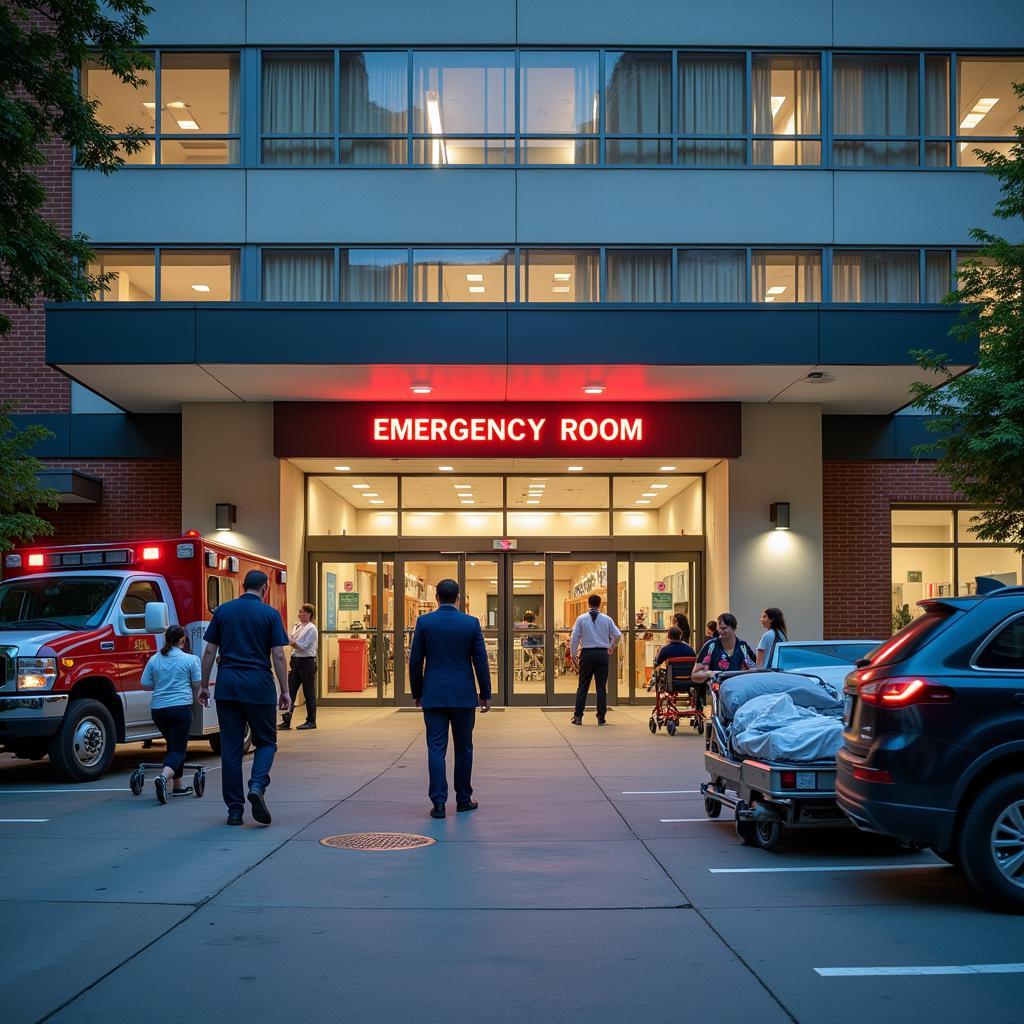Can an Urgent Care Refuse Service? Understanding Your Rights and Options
Navigating the healthcare system, especially during urgent situations, can be stressful. One common question that arises is: “Can An Urgent Care Refuse Service?” The answer isn’t always simple, as several factors can influence whether an urgent care can turn you away.
This article will explore the legalities surrounding urgent care refusal, your rights as a patient, and the potential reasons behind such a decision.
Legal Obligations of Urgent Care Facilities
While urgent cares are not held to the same legal standards as emergency rooms, they are still bound by certain regulations. One key law is the Emergency Medical Treatment and Active Labor Act (EMTALA). However, EMTALA only applies to hospitals participating in Medicare and receiving federal funding. This means it typically doesn’t extend to standalone urgent care centers.
What does this mean for you? It means that unlike emergency rooms, which are legally obligated to stabilize anyone with a medical emergency regardless of their ability to pay, urgent cares have more leeway in determining whom they will treat.
Reasons Why an Urgent Care Might Refuse Service
Even though urgent cares have some flexibility, they cannot refuse service based on discriminatory reasons such as race, religion, national origin, disability, or sexual orientation. Here are some legitimate reasons why you might be refused service at an urgent care:
- Lack of Necessary Equipment or Specialists: Urgent cares are equipped to handle a wide range of non-life-threatening conditions, but they may not have specialized equipment or physicians on staff for specific procedures or complex medical needs.
- Inability to Pay: Unlike emergency rooms, urgent cares can ask about payment options upfront. While they cannot refuse service based solely on inability to pay, they may refer you to a different facility that better suits your financial situation.
- Exceeding Scope of Practice: If your condition requires treatment beyond the capabilities of the urgent care, such as surgery or long-term care, they will likely refer you to an emergency room or specialist.
 Urgent Care Reception Area
Urgent Care Reception Area
What To Do If You’re Refused Service
Being refused service at an urgent care can be disheartening, but it’s essential to remain calm and consider these steps:
- Inquire About the Reason for Refusal: Politely ask for clarification on why you’re being refused service. This will help you understand your options and determine the next course of action.
- Request a Referral: If the urgent care cannot treat you, ask for a referral to another facility, such as an emergency room, specialist, or free clinic.
- Document the Incident: Note the date, time, staff members involved, and reason for refusal. This information can be helpful for future reference or if you need to file a complaint.
When to Seek Emergency Care
It’s crucial to remember that if you are experiencing a life-threatening emergency, do not hesitate to call 911 or go directly to the nearest emergency room. Some situations warrant immediate medical attention and should not be delayed, even if you’re concerned about potential costs or insurance coverage.
 Hospital Emergency Room Entrance
Hospital Emergency Room Entrance
Know Your Rights and Options
While encountering a refusal of service at an urgent care center can be stressful, understanding your rights, the potential reasons behind such decisions, and the alternative options available to you can help you navigate such situations more effectively. Remember, your health and well-being are paramount.
Disclaimer: This information is for informational purposes only and should not be considered legal or medical advice. Always seek the guidance of a qualified legal or medical professional for any specific questions or concerns.
